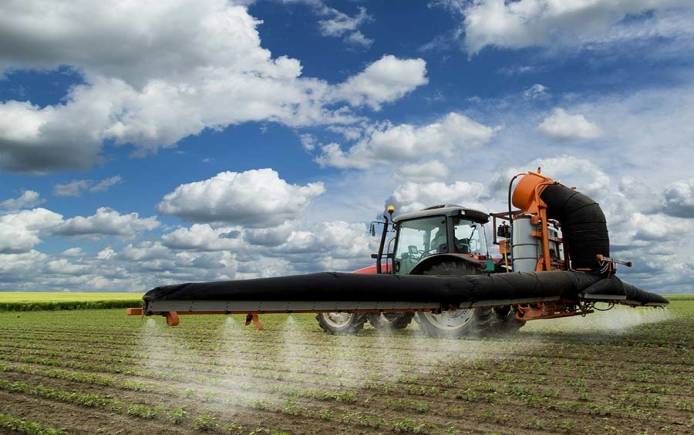A new study led by researchers from The University of Sydney has found that agricultural pesticides leach into the world’s rivers and oceans each year at an alarming rate, damaging a variety of ecosystems.
Every year, agricultural operations around the world use more than three million tons of pesticides, but not a lot is known about precisely where these toxic chemicals go after they are applied to crops, a press release from The University of Sydney said.
The study looked at where 92 of the most frequently used agricultural pesticides travel after application and found that every year about 77,162 tons of potentially hazardous chemicals leach into aquifers. These pollutants have a damaging effect on freshwater resources and ecosystems.
“Our study has revealed that pesticides wander far from their original source. In many cases these chemicals end up a long way downstream and often, though in much smaller amounts, all the way to the ocean,” said associate professor Federico Maggi, the study’s lead author from The University of Sydney’s School of Civil Engineering, in the press release.
The study, “Agricultural pesticide land budget and river discharge to oceans,” was published in the journal Nature.
The study revealed that approximately 80 percent of pesticides applied to crops end up degrading into byproducts known as “daughter molecules” in the surrounding soil.
“This degradation of pesticides often occurs as a ‘cascade’ of molecules into the surrounding environment, which can persist in the environment for a long time and can be just as harmful as the parent molecule or applied pesticide. One such example is glyphosate. Although it is highly degradable, it breaks down into a molecule known as AMPA that is both highly persistent and toxic,” Maggi said in the press release.
The researchers found that, while just a fraction of pesticides make their way into river systems after they are applied, when they do reach the water most of their active ingredients eventually end up in the world’s oceans, bringing negative impacts to coral reefs and marine life, putting both freshwater and marine food chains at risk.
“On paper, 0.1 percent leaching into fresh waterways might not sound like much,” Maggi said. “But it only takes a tiny amount of pesticides to have a negative impact on the environment.”
The research revealed that 805 tons of pesticides end up in rivers annually, causing about 8,078 miles of rivers to have chemical concentrations that are higher than the safety limits for some invertebrates and aquatic plants.
“We must urgently adopt sustainable management strategies to promote reductions in field applications of harmful pesticides and set in place systems to effectively monitor their use under the 2030 Sustainable Development Agenda,” said Dr. Francesco Tubiello, senior environmental statistician at the United Nations’ Food and Agriculture Organization and co-author of the paper, in the press release.
For the study, the scientists used publicly available geospatial data. But because the analysis did not include all pesticides, the study’s authors said their finds are a conservative estimate. The study did not consider pesticides used in public spaces, private residences, aquaculture or legacy pesticides—chemicals like DDT that have been banned or discontinued due to health risks—and thus the risk of chemical exposure for people and ecosystems could be higher than the findings suggest.
Maggi said it was possible to reduce pesticides globally while maintaining food security as long as pesticide toxicity and use are reduced in collaboration with food producers, since even low amounts of various highly toxic pesticides present a high risk for some organisms.
“It is not the pesticide use only that is important,” Maggi said, as The Guardian reported. “What is important is the load—that is, the applied mass and toxicity of individual active ingredients.”
Maggi and a separate research team outline recommendations for reducing the use of pesticides in another paper published last month in Nature Ecology and Evolution.
“Globally, there is a lot of room to increase efficiencies and yield while still supporting an abundant food supply through new technology and modern crop management practices,” Maggi said in the press release.
 RSS Feed
RSS Feed















 July 15th, 2023
July 15th, 2023  Awake Goy
Awake Goy 

 Posted in
Posted in  Tags:
Tags: 













